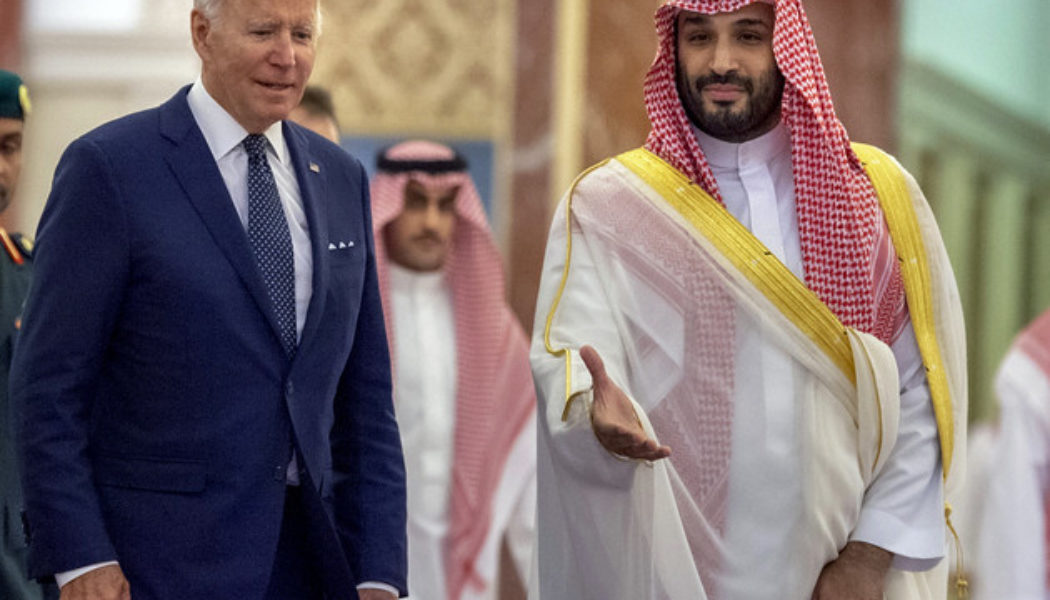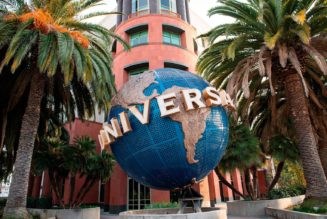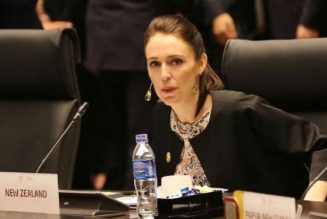Jake Schmidt, senior strategic director of international climate with the Natural Resources Defense Council, summed up Kerry’s strategy succinctly: “It’s embarrass Saudi Arabia.”
Persuading Saudi Arabia to take greenhouse gas emissions seriously is central to keeping temperature increases in check. Temperatures would soar past 1.5 degrees Celsius of warming since pre-industrial levels, baking in catastrophic effects if Saudi Arabia produces its massive reserves of untapped oil.
Yet the kingdom has long played the role of spoiler in international climate efforts. It often throws up delays and seeks to obfuscate at United Nations climate negotiations or in the critical reports from the Intergovernmental Panel on Climate Change, which reviews and compiles authoritative research on the topic.
Privately, people involved in the effort admit the choreography is tricky because of the complex foreign policy implications with Saudi Arabia. That the U.S. climate effort has coincided with a global energy crisis, with Saudi Crown Prince Mohammed bin Salman, also known as MBS, reportedly rejecting personal phone calls from Biden to discuss oil output, isn’t lost on people either, said Alden Meyer, a senior associate at think tank E3G.
The Biden administration’s climate blueprint is designed to mix public embrace of its neighbors and to generate jealousy from Saudi Arabia.
Kerry’s team has first focused on persuading the rulers of UAE and Qatar to commit more money to financing green energy projects in poor nations. Kerry made UAE his first Middle East stop in April 2021, where he flew over a vast solar energy field there and sought to nurture the Emirates’ image of itself as the region’s climate progressive. He’s since visited the Emirates three more times while making two stops in Saudi Arabia and one in Qatar.
But so far, none of those nations has joined a rich-country pledge to contribute $100 billion in finance to help developing countries deal with climate change. That money was supposed to be delivered in 2020, but the figure won’t be reached until the end of next year at the earliest.
Even then, climate advocates say $100 billion falls far short of the trillions of dollars needed to transform energy systems to align with a 1.5 degree C goal. A State Department official said conversations with both the UAE and Qatar have made it clear that more investment is needed, and that they want both nations’ sizable sovereign wealth funds to play a role.
The Biden administration has suggested to the UAE that it faces a reputational and regional risk if it fails to deliver more climate finance as it prepares to host international climate talks in 2024, the State Department official said. Foggy Bottom also has had many conversations with Qatar’s government about contributing to the Green Climate Fund, one of the major vehicles for delivering climate finance. The Gulf nation considered doing so in 2019, but backed away. The U.S., for its part, also has not fulfilled an Obama-era pledge to supply that fund with $3 billion.
The Biden administration also sees potential in bringing the UAE into G-7-oriented clean energy investment packages, known as Just Energy Transition Partnerships, to finance cleaner power systems in emerging economies such as South Africa, Indonesia and Vietnam. The state-run Mubadala Investment Co. has attracted attention within the State Department for its massive investments in clean power in developing nations.
Kerry’s team hopes that attracting more money from UAE and Qatar would compel the same from MBS. While broader U.S. relations with the kingdom are tense, Meyer said Kerry was instrumental in getting Saudi Arabia to accept climate language in last October’s G20 climate change communique, which noted national climate plans needed to ramp up this decade to meet global targets.
The Saudi money could be crucial for financing expensive clean energy infrastructure. MBS is overseeing a plan to try to diversify the kingdom’s economy through its $620 billion sovereign wealth fund, the world’s fifth-largest. Climate advocates hope some of that could be used to finance green projects in other countries and to develop technology to reduce emissions from oil, gas and coal.
A State Department spokesperson said the administration’s efforts have already borne “fruits from this engagement.” Qatar, UAE and Saudi Arabia last year joined a 110-country pact to slash global methane emissions 30 percent this decade, and UAE has set a goal of achieving net-zero emissions by 2050.
“The Gulf in particular has been central to the function of energy markets for the better part of the last century, and efforts to address the climate crisis will be much more successful if the Gulf is also a player in clean energy,” the spokesperson said. “Secretary Kerry and other officials have looked to build upon strong working relationship[s] with many countries in the region to amplify their ambition, implementation, and investments in the transition to a cleaner economy, and to do so in a way that is complementary to their own stated goals of enhancing economic diversification and modernization.”
The Biden administration invited Saudi Arabia and its rival, Qatar, into an Energy Department-created “Net-Zero Producers Forum.” The effort brings other major fossil fuel nations like Canada and Norway together to collaborate on concepts like clean hydrogen and carbon capture. The UAE later joined the forum as well.
But climate activists have accused the forum of greenwashing, since it focuses on developing new technologies to curb emissions from burning oil, coal and gas that would allow those fuels to be used longer, rather than phasing them down. There’s broad distrust in countries like Saudi Arabia and Qatar, whose economic health relies on producing more oil and gas. The Saudis, Meyer noted, have “made it clear they want to be the world’s last producer.”
And Qatar’s liquefied natural gas industry has grown in importance as Europe leans on it to boost shipments and replace Russian supplies, said Brenda Shaffer, a senior fellow at the Atlantic Council’s Global Energy Center and energy professor at the U.S. Naval Postgraduate School. Last month, it tapped Exxon Mobil, Shell, ConocoPhillips and TotalEnergies as partners in new LNG projects.
But shutting the door on Saudi Arabia, Qatar and the UAE would be shortsighted given their cooperation and buy-in on climate change is essential for meeting a 1.5-degree target, said DOE Assistant Secretary for International Affairs Andrew Light.
“If the trade off is start with only the most like-minded countries to the Biden administration today, where we would talk to maybe, I don’t know, two or three of these countries, as opposed to doubling or tripling that number and talk to more countries so that we can get a forum that will wind up having a very decent chance of increasing the ambition of all these parties, I’ll take the latter any day,” Light said. “Because otherwise you’re just walking away from other countries who might not have the ambition that you want right now, but whose impact is incredibly large.”
Schmidt, of NRDC, said that aligns with his understanding of Kerry’s approach.
“You can debate it, but their theory of the case is in addition to beating up the oil people, you also need the oil people to be part of the solution so they see a future for themselves,” he said.
[flexi-common-toolbar] [flexi-form class=”flexi_form_style” title=”Submit to Flexi” name=”my_form” ajax=”true”][flexi-form-tag type=”post_title” class=”fl-input” title=”Title” value=”” required=”true”][flexi-form-tag type=”category” title=”Select category”][flexi-form-tag type=”tag” title=”Insert tag”][flexi-form-tag type=”article” class=”fl-textarea” title=”Description” ][flexi-form-tag type=”file” title=”Select file” required=”true”][flexi-form-tag type=”submit” name=”submit” value=”Submit Now”] [/flexi-form]









